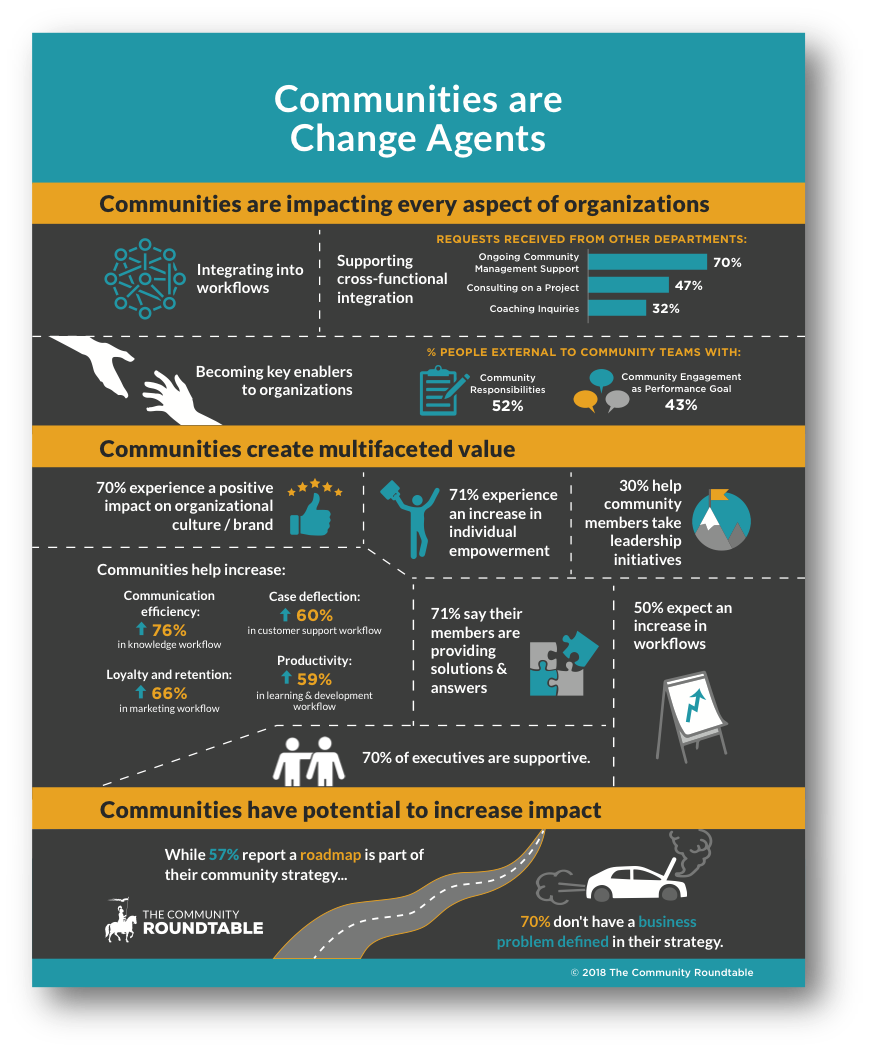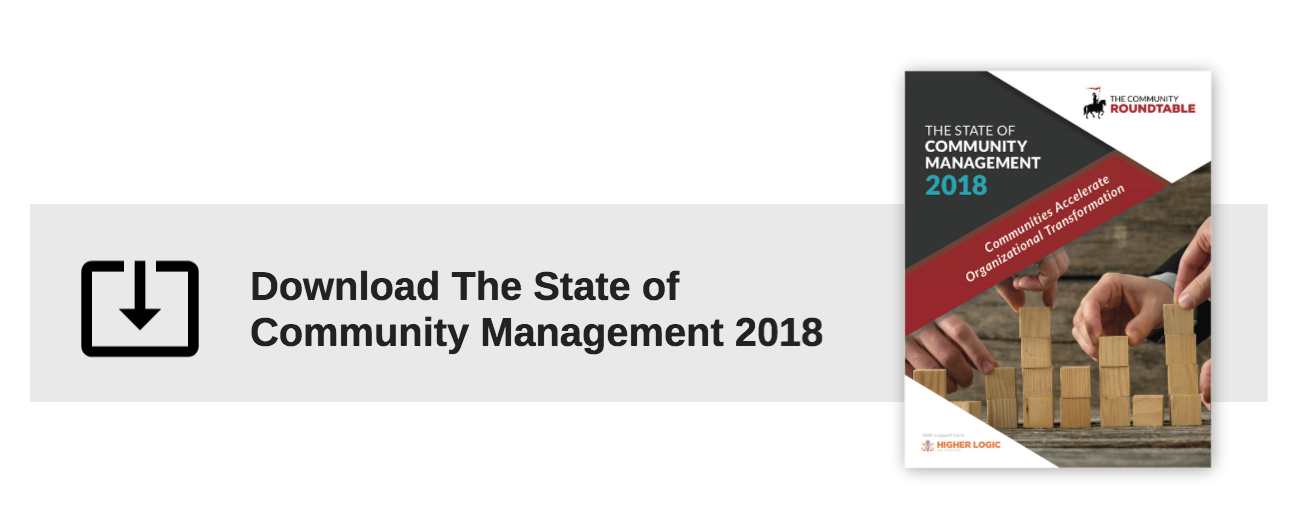 Resiliency and the ability to change quickly are becoming key competencies for all organizations as new technologies create rapidly changing market conditions. Organizations need to acquire and apply new knowledge faster, and the more traditional learning and professional support mechanisms cannot keep up.
Resiliency and the ability to change quickly are becoming key competencies for all organizations as new technologies create rapidly changing market conditions. Organizations need to acquire and apply new knowledge faster, and the more traditional learning and professional support mechanisms cannot keep up.
Online communities and engagement ecosystems support rapid learning by capturing tacit knowledge as it develops, transitioning that knowledge into more explicit practices, and flattening access to it. The ability to adapt efficiently and effectively is at the core of organizational success in the digital era. For any organization to be successful, it needs new practices to gain widespread acceptance and enthusiastic adoption. Mechanisms that prompt and inspire organizations to change successfully are change agents. While the potential for online communities to support learning and change has been discussed for many years, it has only been recently that we can start to see the multifaceted impact that communities have across organizations and their markets, as well as on individual behavior. Our 2018 analysis concludes that communities have evolved into powerful agents of change.
COMMUNITY APPROACHES PROLIFERATE
Communities are impacting organizations broadly and deeply, changing functional approaches, stakeholder categories, and workflows. Community programs, which once were only applied to narrow functional goals with single-purpose use cases, are now often large, complex, and multifunctional entities that influence organizations in a wide variety of ways.
Nearly 70% of community teams collaborate with other departments to integrate various workflows into communities. This “hidden” work is in addition to executing the direct day-to-day community engagement and management work community professionals do. Almost 47% of community teams provide consulting assistance to other departments, effectively acting as centers of excellence that build community management skills and capacity across organizations. Only 8% of community programs are explicitly tasked with the center of excellence role and resourced for it.
Community programs contribute across many functions (like marketing, customer support, knowledge management, and learning and development) simultaneously, regardless of where the community program resides in the organization. Community programs that fall within the customer service department, for example, provide benefits not only for marketing (91% of the time) and knowledge management (59% of the time), but also for the learning and development function (35% of the time). This dynamic is true for both internal and external communities and illustrates why communities are such powerful change agents.
Community management responsibilities are now also dispersed throughout the organization, suggesting that community management is fast becoming a key discipline of all management. Community engagement is part of individual performance metrics in departments outside of the community team 43% of the time, and explicit community management responsibilities are allocated to individuals in other departments 53% of the time. The ability for communities to reach deep into and across organizations is expected to grow rapidly, as 50% of community teams expect either additional workflows to be implemented or a greater adoption of current workflows in the next year.
These trends suggest that community teams are shifting from a predominant focus on direct community engagement and management to one of supporting and enabling the discipline across the organization, where the community team acts as internal consultants and subject matter experts. While this is an exciting shift, it requires more resources and additional skill sets to be successful.

